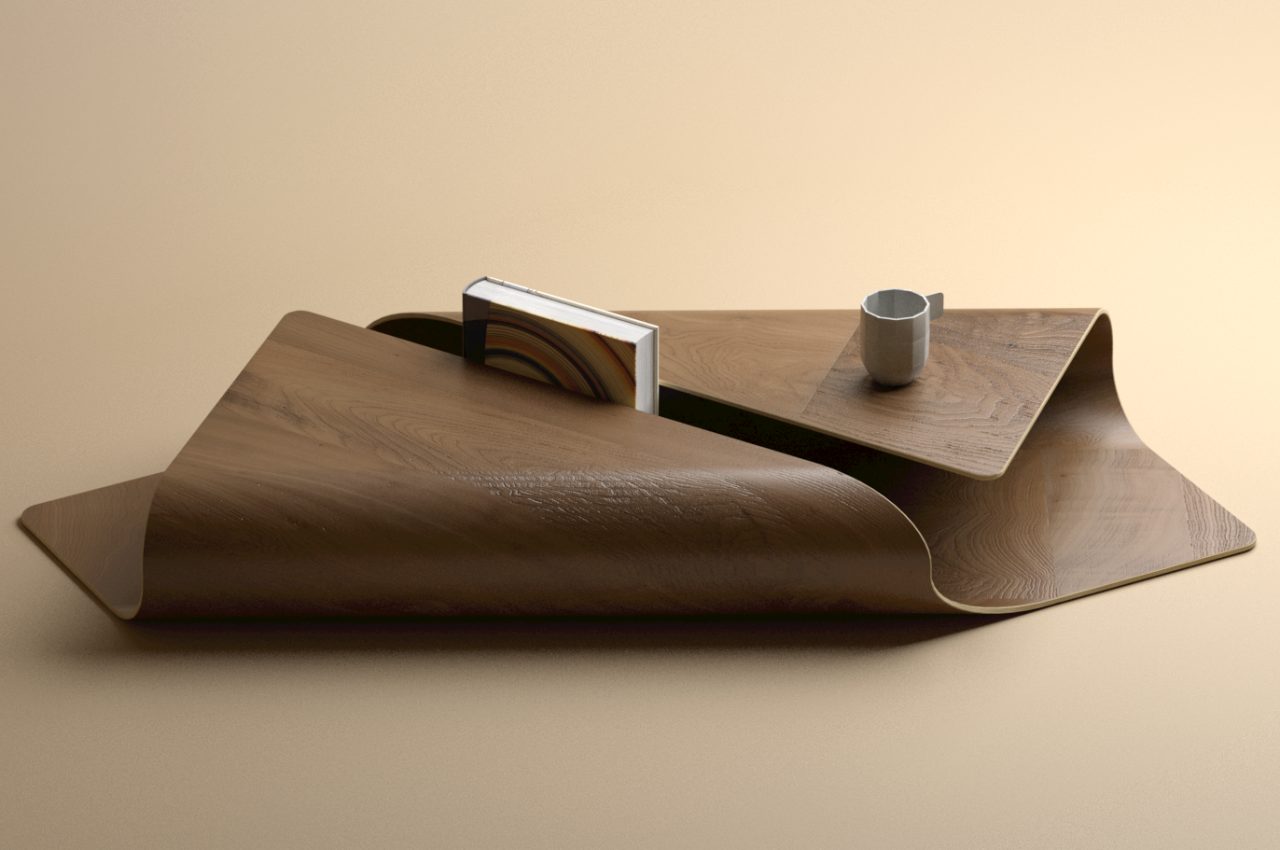
Coffee tables often serve as centerpieces in a living room, providing a visual focal point for anyone entering that space. It may indeed sometimes serve as a table for resting coffee or tea cups, and it’s also a place where homeowners display their favorite books, magazines, or other reading materials, whether or not they’re actually reading them. Given this purpose, coffee tables are designed to be eye-catching or at least visually pleasing to enamor guests without being overbearing. To some extent, this design concept for such a table does capture one’s attention, but it also evokes feelings of coziness and warmth that will almost make you feel like curling up beside it, along with a good book and a hot cup of cocoa.
Designer: Deniz Aktay
The “standard” design of coffee tables comes in rectangular or circular shapes, the former for space efficiency, while the latter aims for visual impact. From those two shapes, designers try to create interesting forms and combinations that serve to attract attention without becoming an obstacle to the table’s functionality. We’ve seen quite a few designs in this regard, ranging from super minimalist metal furniture to stunningly elaborate pieces of sculptural art.
The Cocoon is a design that embraces all those elements in a rather simple way. At its core, it is just a flat wooden plane where two opposite edges are raised and curved to almost meet, creating an elevated surface that acts as the tabletop. The gap between these two edges becomes a rather unique slot to display part of a book, while the space underneath can be used as storage for small items or other reading materials.
The very form of the coffee table itself is already quite stunning, but the images and emotions it conjures up are just as appealing. The word “cocoon” often evokes feelings of having a snug home or blanket wrapped around you to give comfort. Some people do love this arrangement when relaxing and reading books, so the imagery is quite fitting. Alternatively, the design might also remind one of burritos.
Given how this design needs to bend wood at a rather large radius, it might be difficult to pull off in practice. The coffee table will also take up more floor space than typical tables, though you can always use the open area inside to hide things you wouldn’t be able to otherwise. Regardless of whether it’s a practical design to turn into a real product, it’s undoubtedly a beautiful one that creates a notable presence in a room without being overpowering.